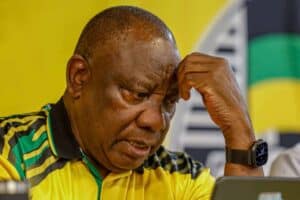The Cuban engineers were welcomed with pomp and ceremony four years ago, but of the original 37, only three remain.

The Free State province’s Cuban Technical Advisers programme, which has cost the taxpayer more than R80 million since its inception by then premier Ace Magashule more than four years ago, has apparently collapsed, with only three of the 37 Cuban engineers still in the country.
The engineers, whose qualifications were not recognised in South Africa, were brought in to improve service delivery in May 2015.
They were welcomed with pomp and ceremony that cost R500,000.
In response to a Democratic Alliance legislature question, Free State MEC of public works, infrastructure and human settlements Motshidisi Koloi said the programme cost the Free State government R84.7 million.
READ MORE: Free State has spent R57m on sending medical students to Cuba
But the DA claimed that four years later, there was nothing to show for the engineers’ presence and the millions spent on the programme.
In terms of the agreement, municipalities in which the engineers were placed would have to each pay between R596,000 and R670,890 annually and provide a free annual return flight to Cuba, transport within South Africa, fully furnished housing, 24-hour armed response security and cellular telephone contracts.
In her reply to Leona Kleynhans, DA member of the Free State provincial legislature Koloi said that, so far, the engineers have cost taxpayers R54.7 million in salaries; R6.4 million for air tickets; R15 million for accommodation; R5 million for vehicles from the government garage; R245,000 for English and Sotho language lessons; R64,800 for driving lessons; R2.4 million for travelling and subsistence, as well as R510,000 for the “welcoming function”.
The Cubans were sent to the province as part of a “bilateral agreement” between Cuba and the Free State department of human settlements, following numerous visits to Cuba by Magashule.
According to Kleynhans, since Magashule’s departure, there were only three of the Cuban technical advisers remaining.
“The DA has also received complaints from Cubans about the lack of actual work for them, the incompetence in the municipalities and receiving only R8,000 of the R50,000 per month promised to them,” she said.
Kleynhans said it appeared the lion’s share of their salaries were paid to the Cuban government and it has been alleged politicians and officials of the provincial government could also have benefited from “this ideologically motivated agreement”.
She said they believed this four-year experiment could amount to money laundering to get money out of municipalities and into the coffers of a foreign government.
Senne Bogatsu of the Free State provincial department of human settlement said salaries were paid directly to the engineers and the department was “not aware of any money laundering activities”.
She confirmed there were only three engineers left, saying others left due to personal reasons before their contracts expired.
Bogatsu said the engineers “performed various engineering work such as inspection of houses that were being built to ascertain adherence to specifications and for quality assurance, project monitoring, structural integrity assessment and making recommendations, as well as designing housing plans.”
The provincial government is no stranger to controversial foreign deals, with reports of Free State students studying abroad as part of the government’s foreign bursary scheme allegedly begging in the streets of China and Belarus due to late payment of stipends.
In 2014, the Free State government sent 239 students to China as part of the scheme, but there was uproar from opposition parties, who queried the enrolment of the SA students in China as the institutions in question were apparently not accredited.
The implication was that the students doing technical programmes in China may not be accredited by the relevant statutory bodies such as the Health Professions Council of South Africa.
For more news your way, download The Citizen’s app for iOS and Android.






